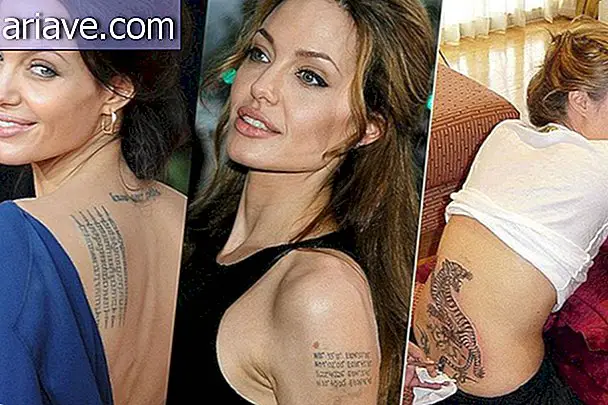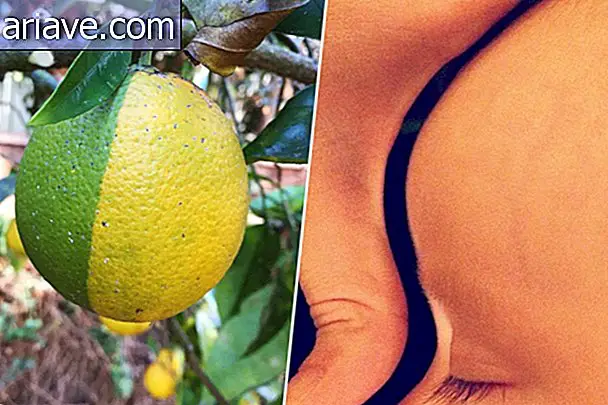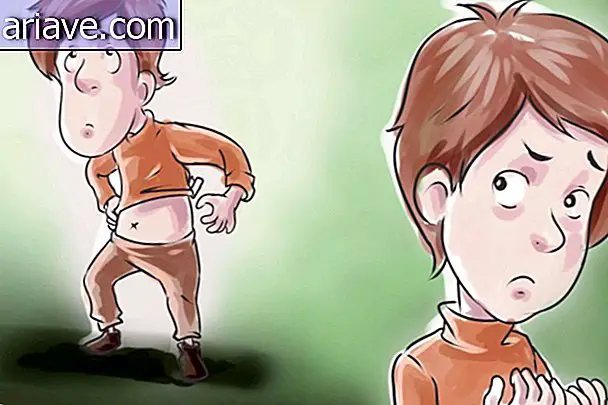Vegans! Who are? What do you eat? What don't they do? Find out now
You may have heard of veganism. In recent years, the movement has grown a lot around the world, and here in Brazil the story is no different. A large number of people have abolished the use of animal products and become vegan. But after all ... What is a vegan? Today, we have brought the answer to this and several other questions that vegans often hear.
And who answers all this is the writer Renan Hamann (who writes for TecMundo and Mega Curioso). A fan of veganism since early 2013, he abandoned meat consumption at the end of 2011 and since then has been studying hard on veganism, vegetarianism and animal liberation. We hope you all enjoy the information gathered here.
What is a vegan?
In a very direct way: the vegan (or vegan) is a person who practices veganism in all its actions, whether in food or not. He is a strict vegetarian in his diet and also does not use animal products. In The Vegan Society's definition, the vegan “seeks to exclude, as far as possible and practicable, all forms of exploitation and cruelty to animals”.
Who is defended by vegans?
This question is basic and all vegan enthusiasts have had to answer it a few times - but it is impossible to talk about it without mentioning it. Veganism is, in short, a movement that seeks animal liberation on all possible fronts, including markets, food, forced labor and entertainment. This is not only about nonhuman animals (which are called "irrational" by common sense).

That is, the liberation of human beings is also defended. This means that vegans seek to eliminate the consumption of products from companies that exploit slave-like labor. In addition, there are still movements (such as Food for Life) that support the universal adoption of veganism as a way of democratizing access to food - as about half of the world's grain is used for fattening “livestock”.
What is the difference between veganism and vegetarianism?
There are many people who confuse the terms and believe that "veganism" is just a diet. As we said earlier, it is an animal liberation movement. The diet followed by vegans is “strict vegetarianism” - which is also followed by other non-vegan people. It may seem confusing at first, but it's actually quite easy to understand. Check out the table below:

The table is from the Vista-se site, which searched the previous link to separate the types of vegetarians that currently exist. As you can see, vegans - vegan movement and vegetarian diet - are those who do not consume meat, milk and dairy products, eggs and egg products, honey or any other product derived from animal exploitation.
As much as the word "strict" is set aside in many cases, it is necessary to differentiate vegetarians from "ovolactovegetarian", "lactovegetarian" or "ovovegetarian". These three groups do not consume meat but still consume products that contribute to the exploitation of animals - we will talk more about that next.
Highlighting what we said earlier, every vegan is a strict vegetarian. However, not every strict vegetarian is vegan. This is because there are people who consume nothing of animal origin for food, but end up consuming leather, wool, silk or go to circus with animals and other exploitative events (including rodeos, zoos and parks).
Fishes and sea food?
If you are a vegan or a vegetarian, you have certainly heard the question “No fish?”. If you are not, you have probably asked the question to a friend. And the answer is very clear: The vegetarian diet excludes meat from fish and other seafood from its menu.
Why?
Because all animals have central nervous system and sentience - the ability to suffer, feel pain or happiness that only animals have. As much as they make no sounds out of the water, they feel pain when caught or cut while still alive. When removed from the water, they die in a painful choking process. Learn more at Nem Fish website.
Why not consume eggs and milk?
Some say that milk and eggs are not a problem, as they are raised without the need to kill an animal - which is clearly the case with meat. However, there are a number of explorations that the vast majority do not consider when talking about the subject. Below you can check some examples:

milk
As with all mammals, in order for the “dairy cow” to produce milk, she must be a mother. In industry, cows are bred with artificial insemination and after calving have their young taken away - usually the females are sent to the same process, and the males are slaughtered while still calves to supply the calf market.
A cow's life expectancy is about 20 years, but dairy cows are usually slaughtered under 8 years old. This is because they begin to have reproductive problems after several forced pregnancies, locomotion problems due to infections or matists, and other inflammation.
eggs
Do chickens lay their eggs in a natural process? Yes, but that does not mean that they are not exploited. As soon as they are born, the chickens are poultry (have their beaks pulled out) without anesthesia. This is done so that they do not hurt each other when subjected to very stressful situations - which happens a lot, as up to eight animals share cages measuring just over 0.2 m².
The NGO Onca - Animal Defense talks more about the subject and reminds that laying hens can spend their entire lives without seeing the sunlight, without walking in a dignified way or living in the natural way - free and having their own wishes respected.
What else is left aside?
You have seen that vegans do not eat meat of any kind, derived from any animal products - including insect-crushing dyes - and do not use leather, wool, silk or any other type of skin. Below is a list of several other activities that are overlooked by vegan enthusiasts:
- Circuses (with animals)
- Zoos & Animal Parks
- Hunting
- Consumption of animal tested products
- Bullfighting, rodeos, cowboys and the like
- Exploitation or abandonment of domestic animals
But do you eat only grass?
Earlier we talked about the vegetarian diet. It is often thought that this involves only tasteless and seasoning salads, but this picture is completely wrong. Vegans eat cereals, fruits, vegetables and any other food that comes from plants besides algae and mushrooms.

And that doesn't mean that the food is just raw - quite the opposite. With some recipes in hand, it is possible to make tasty and totally healthy foods. In addition, there is also plenty of vegan Junkie Food, as the variety of hamburgers, pastries and fried foods that can be made is huge. And more ... You can eat it all without eating a single gram of soy if you don't want to.
On Facebook, there are cool groups for vegans to discuss. "Troll helps", "Vegan Trolls" and "Vegan Ogres" are some of them.
And the proteins?
It is often thought that meats are the only source of protein, but this is not true. The Brazilian Ministry of Health has already recognized vegetarianism as a healthy and complete way of eating. This is because all the amino acids essential for protein production within your body can be obtained from vegetables.
There is only one nutrient we cannot find in abundance in the vegetarian diet: vitamin B12. It is produced by bacteria and cyanobacteria, with which humanity has little or no contact today. This means that a good portion of the population - vegetarian or not - may have B12 deficiency or insufficiency. Fortunately, there are several synthetic vitamin supplements.

Is every vegan skinny?
Not! Not every vegan is thin, hippie or "natureba". The vegetarian diet is rich in nutrients and can be followed by anyone. As odd as some people are, this includes high performance athletes - such as Tony Gonzales (NFL) or Mac Danzig (UFC) - and bodybuilders - like Brazilians Paulo Victor Guimarães and Felipe Garcia do Carmo.
A photo published by Paru: Paulo Victor ?? (@paruvegan) on Aug 14, 2015 at 6:19 PDT
Of course ... There are also vegans who love to eat in high quantities and who do not practice much physical activity - this includes the writer of this article. Therefore, veganism is democratic and takes place for different types of people, age groups, heights, weights and blood types.
Tip: The "Vegan Bodybuilding" Facebook group already has over 50, 000 members. There you can find tips, suggestions, questions and follow the routine of those who exercise while being vegan.
Is it expensive to be vegan?
Another myth that can easily be overturned. Although there are many vegan establishments where food is expensive, vegetarian dieting can be very cheap. Buying only vegetables and preparing your own food makes it very affordable to be vegan - it may even be cheaper than eating meat and meat products.
What to watch to learn more?
If you are interested and want to know more about veganism, this list of documentaries can help you. Some are easily accessible and available on Netflix:
- Forks Over Knives
- Cowspiracy
- Vegegated
- Food Inc.
- What the health
- Samsara
- Food matters
.....
These are some of the most frequently asked questions surrounding the veganism theme. Did you know what we said in the text or was all the information helpful? If you have any questions, you can also use the comments space to ask questions. We will try to answer the questions right here.
* Originally posted on 8/17/15 and edited on 8/30/17











